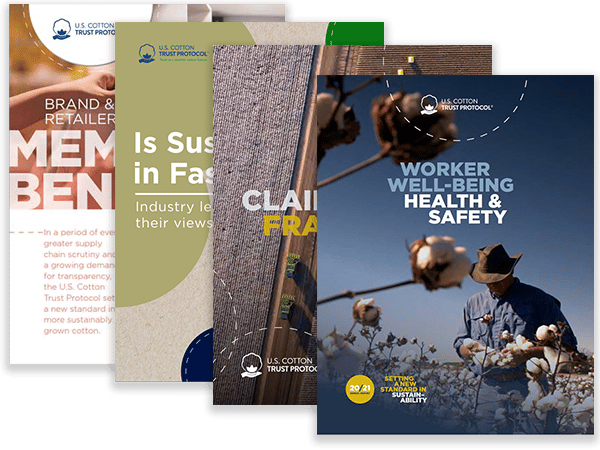Member Benefits
The Trust Protocol is aligned with the UN Sustainable Development Goals, recognized by Textile Exchange and Forum for the Future, and part of Cascale, and Cotton 2025 Sustainable Cotton Challenge. The program has also been recognized and published in the ITC Standards Map.
The program has also been approved as a standard for sustainable cotton by Siegelklarheit, an initiative of the German Federal Government (Partnership for Sustainable Textiles). Following a rigorous and meticulous approval process, the U.S. Cotton Trust Protocol was accepted as a community member of ISEAL, only eighteen months after the program’s launch.
Launched in 2020, the U.S. Cotton Trust Protocol is the voluntary sustainability program and traceability platform for U.S. Cotton.
The program’s mission is to create a sustainable standard for U.S. Cotton that is data-powered, traceable, and generates positive impact through the global cotton value system – from farms to finished product.
The Trust Protocol is the only system that provides quantifiable and verifiable goals and measurement and drives continuous improvement in six key sustainability metrics – land use, soil carbon, water management, soil loss, greenhouse gas emissions, and energy efficiency. As well as the world’s first sustainable cotton fiber program to offer article-level supply chain transparency to all members.
Learn more about the benefits the program offers its different members.


